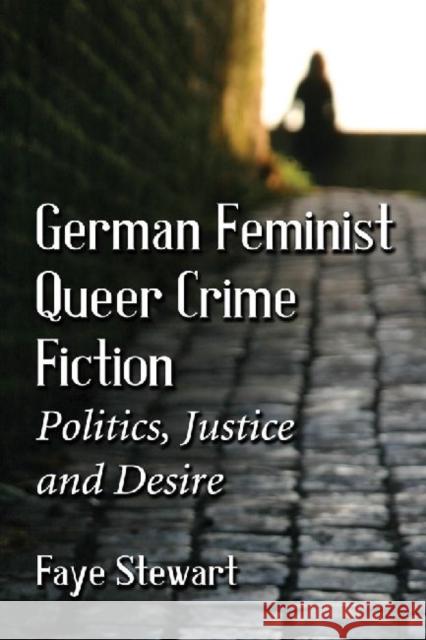German Feminist Queer Crime Fiction: Politics, Justice and Desire » książka
German Feminist Queer Crime Fiction: Politics, Justice and Desire
ISBN-13: 9780786478453 / Angielski / Miękka / 2014 / 240 str.
A marriage of mystery fiction and queer concerns, queer crime literature celebrates the pairing of the political and the sexual. Queer crime fiction is a subgenre in which sex, gender and sexuality are among the mysteries to be solved. Its writers use boundary-crossing identities and desires to express social critique, inviting readers to interpret queer narratives as literary incursions into cultural traditions. From androgynous investigators and serial killer housewives to closeted lesbians and transgendered lovers, the characters in queer mysteries are metaphors for changing social and political relations. This book reads German-language crime stories as allegories about 20th- and 21st-century upheavals, raising questions about human behavior and justice, the horrors of extremism, the changing shape of the nation, and the possibilities of democracy. Anchored in the historical contexts of protest cultures and countercultures of the last three decades, this study examines novels by popular feminist writers Pieke Biermann, Edith Kneifl and Ingrid Noll, and unexplored works by Susanne Billig, Gabriele Gelien, Corinna Kawaters, Katrin Kremmler, Christine Lehmann and Martina-Marie Liertz. An analysis of recent debates through the lens of genre fiction serves as the foundation for telling the cultural history of contemporary Germany, Austria and Europe as a whole from a new perspective.











